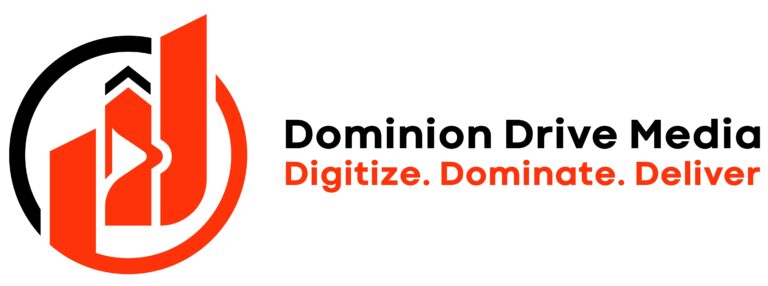Government organizations are realizing the relevance of digital marketing for public engagement. However, this terrain presents obstacles. Government entities confront particular digital marketing challenges, from financial limits to legal impediments.
Budget Constraints
Budget limits make digital marketing difficult for government entities. Government entities have fewer marketing expenditures than private companies. This limits their capacity to invest in innovative digital marketing tools and technology and hire specialists.
Government agencies must follow tight spending rules. This makes it hard to finance digital marketing initiatives since every expense must be justified and authorized. Thus, government organizations may need help to compete with private sector firms with higher resources.
Despite these obstacles, government organizations may optimize digital marketing within budget. Prioritizing high-return strategies like social media outreach or focused advertising may help. You may pool resources and save expenses with other government departments or groups.
Regulatory Hurdles
Regulatory constraints are another digital marketing problem for government entities. Government agencies must comply with several data privacy and security standards. Digital marketing tactics like targeting user data or leveraging thirdparty platforms for advertising might take a lot of work to adopt.
Government entities digital marketing must be ethical and free of prejudice. This requires verifying information and messages for authenticity and impartiality which may hinder campaign production.
Government organizations must emphasize compliance and transparency in digital marketing to overcome regulations. Consulting legal professionals may help ensure campaigns comply with laws and regulations. Investment in staff training and education also helps guarantee that digital marketing participants understand their roles.
Limited Technical Expertise
Technical inexperience is a third digital marketing problem for government entities. Many government agencies need more staff and skills to undertake complicated digital marketing initiatives. This includes SEO website analytics social media management and content marketing.
Government organizations may need more technical expertise to reach their target audience and assess digital marketing performance. Staff must also upgrade their skills and expertise to remain abreast of the quick evolution of digital marketing technology.
Staff training and professional development may help government entities handle this issue. This may include hiring external trainers or cooperating with schools to teach digital marketing skills. Government organizations may also consider outsourcing digital marketing to outside companies or consultants with the necessary competence.
Learn More : Top Digital Marketing Trends For The Food And Beverage Industry
Government organizations confront unique digital marketing obstacles but may use these methods to serve better and engage constituents. Government organizations may use digital marketing to accomplish their objectives by overcoming financial limits, regulatory difficulties, and technological skills.
Accessibility And Inclusivity
Digital marketing issues for government entities include accessibility and inclusion. By law and morality, digital material must be available to all people, including those with impairments. Accessibility requires WCAG compliance and consideration of varied user demands, making it complicated.
Government organizations must include people with visual, auditory, motor, and cognitive disabilities in their digital marketing. This may include picture alt text, video captions, and audio transcripts to accommodate diverse users. To make information and services accessible to all residents, government websites and digital platforms must be usable.
Beyond accessibility, inclusivity includes cultural and linguistic variety. Digital marketing material from government organizations must appeal to varied consumers, especially those with distinct cultural and linguistic preferences. This may comprise multilingual material, culturally suitable images and messages, and focused community engagement.
Government organizations may educate personnel on accessibility and employ inclusive design in digital marketing to solve these issues. Automatic accessibility testing tools may also speed up accessibility problem detection and repair. Digital marketing techniques prioritizing accessibility and inclusion may help government organizations serve all residents and create a more inclusive society.
Learn More : The Role Of Influencers In Fitness Brands’ Digital Marketing Strategies
Data Privacy And Security
Data privacy and security are top priorities for government digital marketers. With more personal data being gathered and processed online government agencies must follow strict data protection standards and secure sensitive data.
Government organizations must carefully gather preserve and utilize citizen data for digital marketing. This includes obtaining explicit consent from a consumer before collecting their personal information implementing strong security measures to protect data from cyber threats and complying with GDPR and CCPA.
Government entities must educate people about how their data is used and allow them to view update or remove it. This may boost public trust and reduce data privacy and security worries. Government entities may address these issues by implementing data governance frameworks and setting explicit citizen data regulations.
This may require hiring data protection officers to monitor compliance, audit data processing processes, and educate workers in cybersecurity. Government organizations may maintain public trust and secure sensitive data by emphasizing data privacy and security in digital marketing.
Measuring ROI And Effectiveness
Government organizations must measure digital marketing ROI and efficacy which can be challenging. Unlike private sector businesses focusing on sales and money government agencies must evaluate their digital marketing initiatives based on public involvement awareness and behavior change. In these domains quantifying digital marketing campaign performance is complicated.
Website traffic social media participation and public input are KPIs that government entities must set. They must also build data collection and analysis tools to monitor success and suggest areas for improvement. Digital marketing results are difficult to attribute especially in integrated multichannel efforts.
Government agencies must use sophisticated analytics like attribution modeling and data visualization to evaluate their digital marketing activities and maximize budget allocation. Government agencies might invest in real-time campaign performance and audience behavior analytics solutions to overcome these difficulties.
Promoting data-driven decision-making in the company may also assist in reviewing and enhancing digital marketing activities for optimal effect. Government organizations can prove the worth of their digital marketing efforts and create data-driven choices to improve citizen outcomes by assessing ROI and performance.
Conclusion
Budget limits legal difficulties limited technological skills accessibility inclusiveness concerns data privacy security problems and assessing ROI and performance are all challenges for government organizations in digital marketing.
However, by tackling these issues and implementing new methods and best practices government agencies may use digital marketing to engage people improve transparency and provide essential services.
Government agencies may overcome these challenges and use digital marketing to better serve society by collaborating investing in people and technology and being ethical and inclusive.





